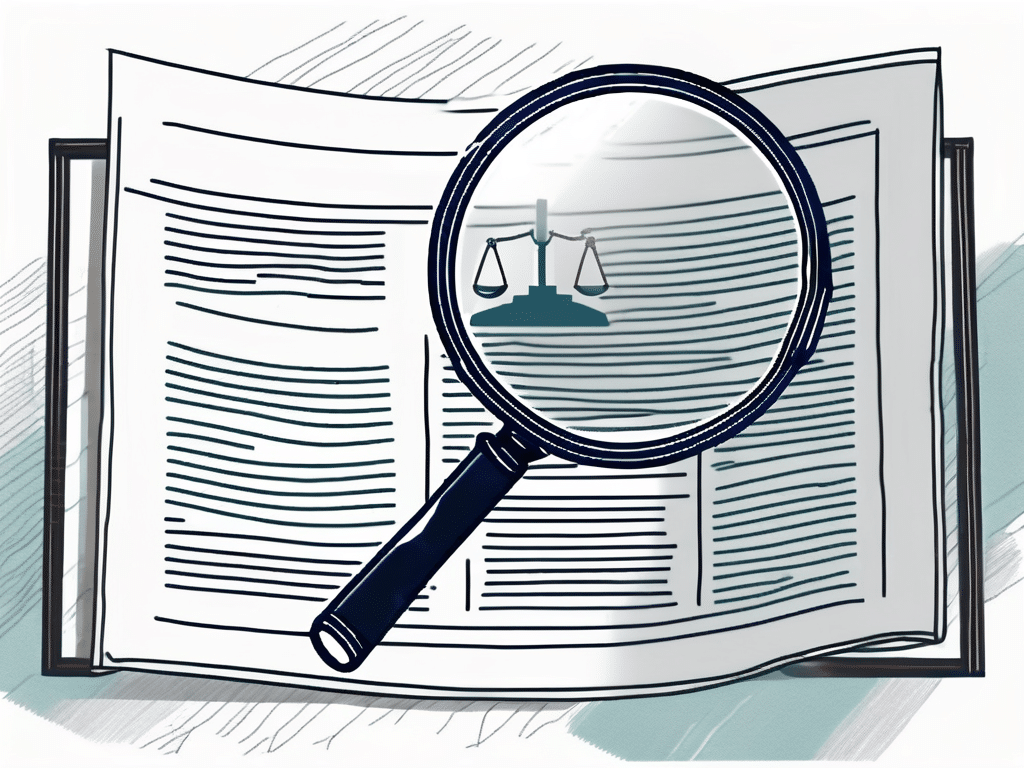Small businesses often face legal challenges that can significantly impact their operations and success. From contracts and intellectual property issues to employment disputes and regulatory compliance, having a skilled small business lawyer by your side can make a world of difference. But finding the right lawyer for your specific needs can be a daunting task. In this article, we will explore the essential steps to help you find a small business lawyer who is trustworthy, experienced, and suited to your legal requirements.
Understanding the Role of a Small Business Lawyer
Before diving into the process of finding the right small business lawyer, it’s essential to understand what their role entails. A small business lawyer is a legal professional who focuses on providing advice and representation to small businesses. They act as a valuable resource, guiding entrepreneurs through various legal challenges and helping them navigate the complexities of the legal system.

Small business lawyers are like the unsung heroes of the business world. They have a wide range of responsibilities that can make a significant impact on the success of your company. From drafting and reviewing contracts to representing your company in negotiations and disputes, their experience is invaluable.
Key Responsibilities of a Small Business Lawyer
A small business lawyer has several crucial responsibilities that can benefit your company. These include:
- Drafting and reviewing contracts, agreements, and other legal documents.
- Providing legal advice on business formation, structure, and compliance.
- Assisting with intellectual property protection, such as trademarks and copyrights.
- Representing your company in negotiations, disputes, and litigation.
- Advising on employment law matters, including hiring, terminations, and employee contracts.
Imagine having a small business lawyer by your side, meticulously examining every contract and agreement to ensure that your company’s interests are protected. They can navigate the complex world of intellectual property, helping you safeguard your unique ideas and creations. And when disputes arise, they will be there to fight for your company’s rights, using their experience to negotiate favorable outcomes or represent you in court.
Why Your Business Needs a Lawyer
Regardless of the size or nature of your business, having a lawyer is crucial for several reasons:
- Legal experience: Small business lawyers have in-depth knowledge of business law and can provide valuable advice tailored to your specific needs.
- Risk Mitigation: By working with a lawyer, you can identify and address potential legal pitfalls before they become serious issues.
- Contractual Protection: A lawyer can review contracts and ensure that your company’s interests are protected in all business dealings.
- Peace of Mind: Having a lawyer on retainer gives you peace of mind, allowing you to focus on your business knowing that legal matters are being taken care of.
Legal experience is like a shield that protects your business from potential threats. With a small business lawyer on your side, you can confidently navigate the legal landscape, knowing that you have a trusted advisor who will guide you through any legal challenges that may arise. They will help you make informed decisions, minimize risks, and ensure that your company operates within the boundaries of the law.
So, whether you’re just starting your small business or have been in operation for years, don’t underestimate the importance of having a small business lawyer. They are the legal backbone of your company, providing the support and guidance you need to thrive in a competitive business environment.
Identifying Your Legal Needs
Before embarking on your search for a small business lawyer, it’s crucial to identify your legal needs. This will help you find a lawyer who focuses on the areas of law that are most relevant to your business.
Understanding the legal landscape of your industry is essential in determining the specific legal experience required for your small business. Different sectors may have unique legal challenges and regulations that necessitate legal knowledge. For example, a tech startup may require legal counsel well-versed in intellectual property law to protect their innovations, while a retail business may need assistance with contract negotiations and compliance with consumer protection laws.
Common Legal Issues for Small Businesses
Small businesses often encounter certain legal issues, including:
- Business formation and structure.
- Contract disputes.
- Intellectual property protection.
- Employment law matters.
- Regulatory compliance.
It’s important to recognize that legal issues can arise at any stage of your business’s development. From the initial formation of your company to day-to-day operations and potential growth, having a legal advisor who understands the intricacies of your industry can provide invaluable support and guidance.
Determining Your Specific Legal Requirements
Once you’ve identified the common legal issues applicable to your business, you need to assess your specific legal requirements. Consider the following questions:
- Do you require ongoing legal advice or assistance with a specific project?
- Are you facing any pending legal matters that require immediate attention?
- What is your budget for legal services?
- Do you prefer a local lawyer who understands the local laws and regulations?
Furthermore, it’s essential to evaluate the potential growth and expansion plans for your business when determining your legal needs. A lawyer who can adapt to your evolving requirements and provide scalable legal solutions can be a valuable asset as your small business progresses.
Searching for a Small Business Lawyer
Now that you have a clear understanding of your legal needs, it’s time to start searching for a small business lawyer who can meet those needs. Finding the right legal representation for your small business is crucial in navigating the complex landscape of business law and protecting your interests.

When searching for a small business lawyer, it’s important to consider not only their experience in business law but also their experience working with small businesses similar to yours. A lawyer who understands the unique challenges and opportunities faced by small businesses can provide tailored legal advice and support to help your business thrive.
Where to Look for a Small Business Lawyer
There are several places you can look for a small business lawyer:
- Referrals: Seek recommendations from other business owners, friends, or family who have worked with small business lawyers. Personal referrals can provide valuable insights into a lawyer’s communication style, approach to problem-solving, and overall effectiveness.
- Bar Associations: Local or state bar associations often have referral services that can connect you with qualified lawyers. These associations can help you find lawyers who are licensed to practice in your area and are in good standing with the bar.
- Online Directories: Utilize online directories that list lawyers focusing on small business law. These directories often provide detailed profiles of lawyers, including their education, experience, and areas of focus, making it easier to find a lawyer who meets your specific needs.
- Professional Networks: Attend industry events or join professional networks to connect with lawyers who have experience in your specific industry. Building relationships with lawyers who understand the nuances of your industry can be invaluable in addressing industry-specific legal issues.
Utilizing Online Resources
Online resources can be a valuable tool in your search for a small business lawyer. Websites like Avvo, Martindale-Hubbell, and LegalMatch provide information about lawyers’ credentials, client reviews and areas of focus. Take the time to read reviews and gather information to narrow down your choices before moving forward. Researching potential lawyers online can give you a comprehensive view of their background, reputation, and track record, helping you make an informed decision when selecting legal representation for your small business.
Evaluating Potential Lawyers
Once you have a shortlist of potential lawyers, it’s crucial to evaluate them carefully to ensure they are the right fit for your business. Choosing the right lawyer can have a significant impact on the success of your legal matters, so taking the time to assess your options is essential.
When evaluating potential lawyers, consider scheduling in-person meetings or virtual consultations to get a better sense of their personality and work style. Building a strong rapport with your lawyer can make the legal process smoother and more efficient.
Checking Credentials and Experience
Verify the credentials and experience of each potential lawyer on your list. It’s important to ensure that the lawyer is well-qualified and has the necessary experience to handle your specific legal needs. Check if they are licensed to practice law in your state and if they have any disciplinary actions against them. Additionally, inquire about their experience in handling cases similar to yours, as this can give you confidence in their ability to represent you effectively.
Assessing Communication and Availability
Open and effective communication is vital when working with a lawyer. During initial consultations, pay attention to how the lawyer communicates and whether they listen to your concerns. Clear and transparent communication can help prevent misunderstandings and ensure that you are always informed about the progress of your case. Also, consider their availability and responsiveness. You want a lawyer who will be accessible and responsive when you need them, especially during critical stages of your legal proceedings.
Making the Final Decision
After careful evaluation, it’s time to make the final decision and choose the right small business lawyer for your company.

Considering Costs and Fees
While cost should not be the sole determining factor, it is an important consideration. Discuss fees and billing practices with each potential lawyer to ensure they align with your budget and expectations.
Trusting Your Instincts
Lastly, trust your instincts. Choose a lawyer with whom you feel comfortable and confident. Building a strong working relationship with them is crucial for the success of your legal endeavors.
By following these steps and conducting thorough research, you can find the right small business lawyer who will provide essential legal guidance and support to protect your company’s interests and ensure its long-term success


